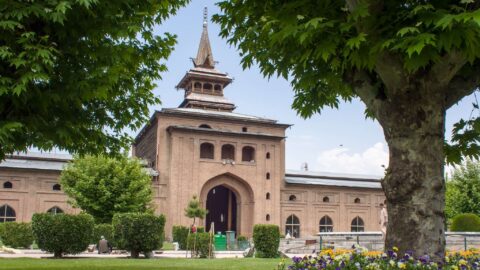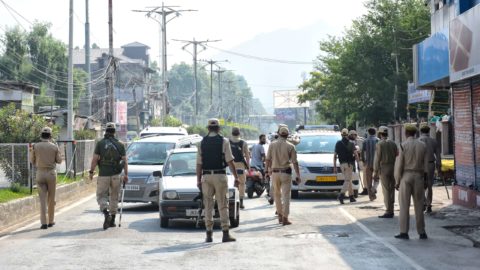The passage of India’s new Waqf Act has spotlighted the growing vulnerability of Muslim religious…
Kashmiri prisoners in New Delhi’s Tihar jail suffer in immense heat
On 2nd June, family of Kashmiri female political prisoners stated that their incarcerated loved ones are at severe risk due to unprecedented heatwave in New Delhi.
In the final days of May, temperature in parts of Delhi reportedly reached 52.9 degrees Celsius, marking the highest ever recorded in India. Reports have emerged of people in Delhi passing away due to heatstroke.
India is no stranger to searing summer temperatures but years of scientific research have found climate change is causing heatwaves to become longer, more frequent and more intense. Aarti Khosla, director at the research institute Climate Trends, told the AFP news agency that cities are more vulnerable to the heat due to the “compounding effects of urbanization and climate change”.
“Expect a greater number of hotter days, prolonged dry spells and less rainy days as weather patterns continue to change due to increased human emissions,” she said.
Hundreds of Kashmiri political prisoners are currently illegally incarcerated in New Delhi’s Tihar jail for their pro-freedom activism and advocacy for Kashmiri right to self-determination.
Speaking to us, a family member of a woman Kashmiri political prisoner stated, “Our people’s skin is peeling off in the heat of Tihar (jail). They keep towels dipped in water on their heads to survive. High voltage bulbs are kept on all day that also emit additional heat and you are not allowed to turn them off.”
Kashmiri prisoners, who already suffer from various ailments and a denial of medical healthcare, have not been allowed any means of cooling in this severe heat. When they requested the jail authorities that they would buy a cooler through their own money, that request was turned down as well.
The family members who have sent lighter clothes to prison have also complained that the prison authorities are not allowing the clothes to reach their incarcerated loved ones. Prisoners have informed their loved ones of skin-burns and frequent blackouts.
Kashmiri political prisoners are at a higher risk as their bodies are not acclimatized at all to the climate of Delhi. This climate is foreign to them as the temperature in Kashmir barely ever rises above 35 degrees Celsius. The highest temperature reliably recorded is 38.3 degrees Celsius, recorded as early July 1946. The temperature in Kashmir averages at 30 degrees Celsius this week. This is way below the average temperature in Delhi this summer, which revolves around 45 degrees Celsius.
The female prison in Tihar, called Jail No. 6, is headed by a pro-Modi Brahmin police officer who is particularly hostile to Kashmiri political prisoners. She has denied them access to medicines routinely and does not respond to any petitions made to her.
It is clear that the state’s incarceration of Kashmiri political prisoners in such an environment that is hostile to their bodies, and then the denial of any relief to them, is a systematic way of torturing them. In the words of a family member of an incarcerated Kashmiri political prisoner, “this is India’s weaponization of climate-change against Kashmiri prisoners.”





